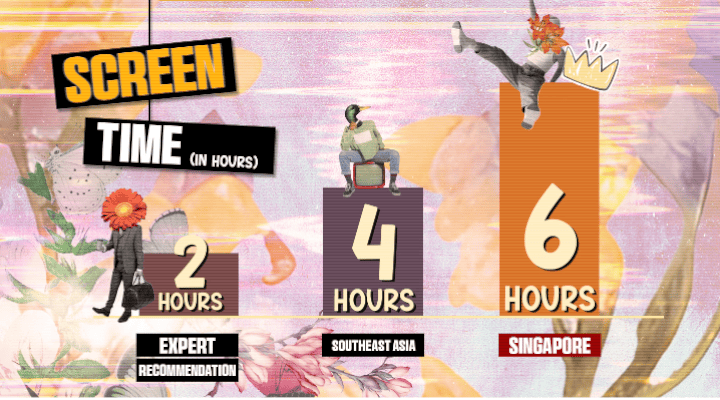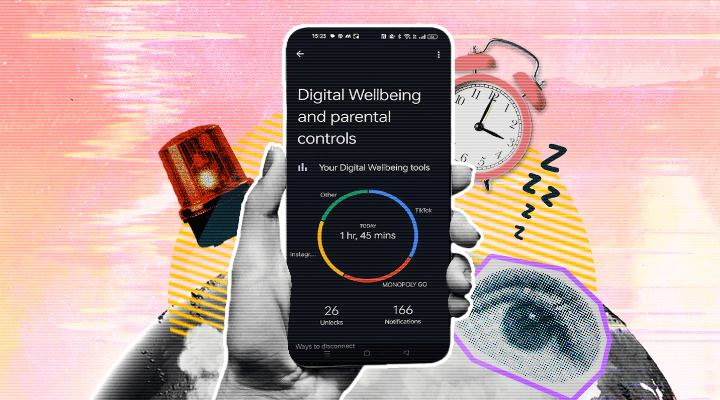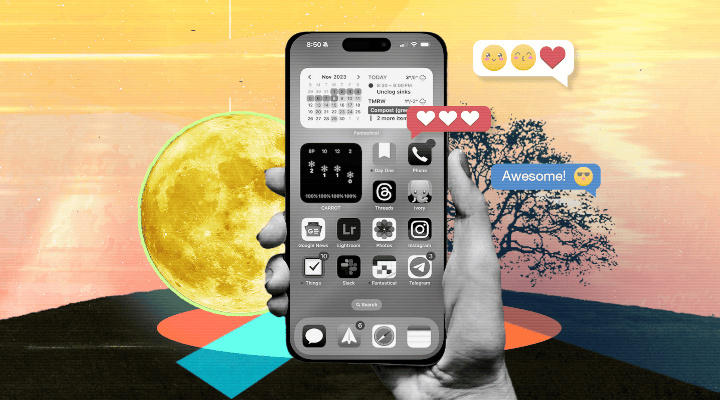Getting Stuck In The ‘Reel Life’: How Much Screen Time Is Too Much?

Let’s face it – it is nearly impossible to escape a screen nowadays.
With technology helping everyone stay connected, getting lost in the “reel” world is easy if you do not have the right controls.
How Much Screen Time Is Too Much?
A survey conducted by AIA found that Singaporean adults spend at least six hours a day working on their computers and an additional four hours of screen time for leisure.

What Happens When You Have Too Much Screen Time?
One significant consequence of excessive screen time is decreased sleep quality. The blue light emitted from screens can decrease melatonin levels, a hormone released in dark surroundings that helps with sleep.
The extended alertness can leave you mentally overstimulated and may cause insomnia. This will increase daytime sleepiness and decrease work productivity.
Studies have proven that when combined with mindless scrolling on your devices, the lack of quality sleep inhibits your cognitive ability to retain new information and keep up in high-pressure environments.
Regulation Is Key:
With that said, adults should limit screen time outside work to less than two hours daily. This goal might seem impossible, but with the right tools, you no longer have to experience the impact of too much screen time.

To manage your screen time, you can monitor your usage and place time limits on the applications you spend the most time on.
To protect your eyes, try the 20-20-20 rule. For every 20 minutes you spend on your devices, look away from your screen for 20 seconds at an object 20 feet away (approximately six metres).
A study showed that adhering to this rule decreases the constant exposure to blue light and prevents mental overstimulation.
Entering Greyscale Mode
The glare from these devices can keep you in day mode even at bedtime. A simple and effective way to reduce your screen time is to use a greyscale filter.

Smartphones are designed to retain attention, but viewing your devices in greyscale can help decrease your phone’s “attractiveness” and reduce screen time.
As Singapore continually transforms into a nation powered by digital innovations, limiting screen time has been and continues to be challenging for many.
However, spending too much time on your phone harms your overall well-being, so the key lesson is to keep your screen time in check and shift your focus away from your digital devices when you can.

Want to get more stories like this? Join our Telegram channel: https://t.me/psdchallenge.
- POSTED ON
Apr 2, 2024
- TEXT BY
Jayme Teo
- PHOTOS BY
Mandy Ong








